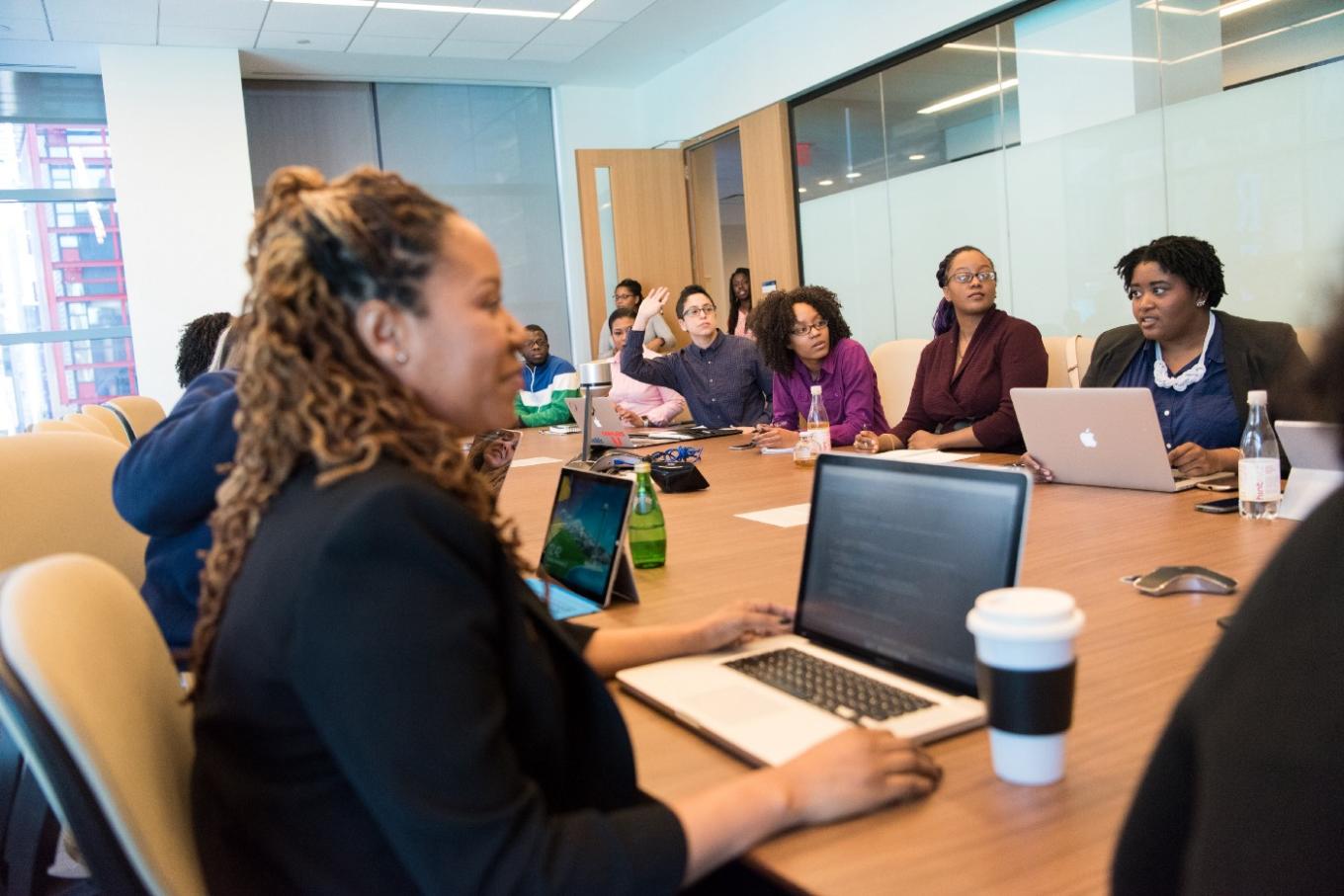
What does a truly diverse, equitable, inclusive workplace look like? While conversations around “DE&I” are more common today than just five years ago, plenty of assumptions remain to be challenged.
Like the misconception that having a diverse staff automatically translates to an environment where everyone feels belonging. Or the idea that a DE&I leader shoulders the responsibility for changing an entire company culture. How do we move beyond DE&I narratives that attempt to short-circuit the critical — and cumbersome — process of transforming organizations from the inside-out?
At the Ashoka Changemaker Summit, Lorena García Durán, Ashoka’s Global Leader for Diversity, Equity, and Inclusion, caught up with four DE&I leaders from the corporate, entertainment, and philanthropic sectors. Hear from Yvonne Moore, President at Moore Impact, Miki Woodard, Head of Good Robot at Bad Robot Productions, Vikki Leach, Director of Diversity and Inclusion at Zalando SE, and Beric Alleyne, Global Head of DEI at eBay in the full session. Here are our highlights.
“Living our values” is a constant struggle
Companies are operating in an ecosystem that’s shaped by white dominant society. Challenging this oppressive context to create more inclusive companies is an uphill battle — for BIPOC leaders, too, says Yvonne. Our values must stay at the forefront, informing every policy and practice — from how companies do their investments to vacation and leave for employees.
DE&I is about so much more than demographics
It’s important that companies hire more people from communities that have been historically excluded. But demographic shifts aren’t enough. We’re starting to see other kinds of important change, Beric says — reflected in whether companies choose to invest their money into women-owned, black-owned investment banks, for instance. He explains more:
Vikki reminds us not to get stuck by indefinitely collecting data on data, which can turn into a convenient excuse to delay action:
Equity starts behind the curtain
Turning to the world of entertainment, how does DE&I transform an industry with such cultural sway? Offering a set of crucial questions, Miki shines a spotlight on the storytellers: From the script to the set, who is on the crew? Who is in the writer’s room? And do they feel the safety to bring their full selves and creativity to that space? We must live up to truly inclusive standards to bring much-needed perspectives to the screen.
Leaning into learning journeys
Pre-pandemic, when travel was more possible, Bad Robot employees had the chance to embark on physical learning journeys to deepen their understanding of equity issues. Before leaving on the trip — a civil rights trip in Alabama, for example — employees spent months learning more about the history and context. Miki explains the importance of trust, curiosity and care, especially when folks start this journey from different reference points:
At eBay, employees took a different kind of learning journey via deep conversations with volunteer storytellers, who shared personal experiences that are often misunderstood.
No such thing as a “DE&I expert”
It’s tempting to believe that learning journeys are only for some, but in reality even professionals who dedicate their careers to DE&I always have more to learn, too. Every panelist agreed: the idea of a DEI expert is a myth — no one can know all there is to know about every group and culture on the planet. Beric enjoys the process of constantly seeking new learning:
The myth of the DE&I expert can also cause harm. As Yvonne reminds us, white colleagues should “level up” their own learning instead of exhausting colleagues of color by asking them to serve as experts and teachers.
Looking ahead: How do we level the playing field in the hybrid workplace?
With the hybrid office evolving, inclusion becomes an even greater challenge. Will newer employees, working totally online, have the same advancement opportunities as longtime workers? What about those working from home, such as caregivers, who can’t return to work? Leaders must enter these conversations with understanding, empathy, and intentionality, Beric says.
---
About the Ashoka Changemaker Summit
The Changemaker Summit “A New Togetherness” is Ashoka’s yearly global gathering. It connects a vast community of social innovators and leaders from business and philanthropy to celebrate inspiring solutions, learn, and collaborate towards systemic change. Tune in every Thursday through December for conversations on Planet and Climate, Equity, and more. The culminating event on December 2 will be hosted in Turin, Italy. More information at https://acms.ashoka.org/